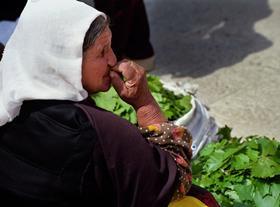
The European Court of Justice (ECJ), the EU’s highest court, has ruled that EU countries must correctly label products originating from illegal Israeli settlements in the Occupied Palestinian Territory, according to the Guardian.
“Foodstuffs originating in the territories occupied by the state of Israel must bear the indication of their territory of origin,” the ECJ concluded.
The Luxembourg-based court stated that the labelling of products from an Israeli settlement must provide an “indication of that provenance” in order for consumers to be able to make “informed choices” when buying goods.
The EU demands that any produce made in the settlements be easily identifiable to shoppers, insisting that they should not carry the generic “Made in Israel” tag.
It said any failure to identify the point of origin of produce meant that “consumers have no way of knowing, in the absence of any information capable of enlightening them in that respect, that a foodstuff comes from a locality or a set of localities constituting a settlement established in one of those territories in breach of the rules of international humanitarian law”.
The decision was welcomed by human rights groups, but received criticism in Israel.
“Oxfam applauds today's ECJ ruling,” said Oxfam’s country director for the Occupied Palestinian Territory, Shane Stevenson. “It is an important step in the right direction for the Palestinian people carrying the burdens of settlement expansion. These settlements are illegal under international law. They are violating the rights and freedoms of Palestinians and further entrench poverty in the Occupied Palestinian Territory. Consumers have a right to know the origin of the products they purchase, and the impact these purchases have on people's lives.”
Lotte Leicht, EU director at Human Rights Watch, said it was “an important step toward EU member states upholding their duty not to participate in the fiction that illegal settlements are part of Israel. European consumers are entitled to be confident that the products they purchase are not linked to serious violations of international humanitarian law.”
Israel has argued that the labelling policy is unfair and discriminatory and that other countries involved in land disputes have not been similarly sanctioned.



